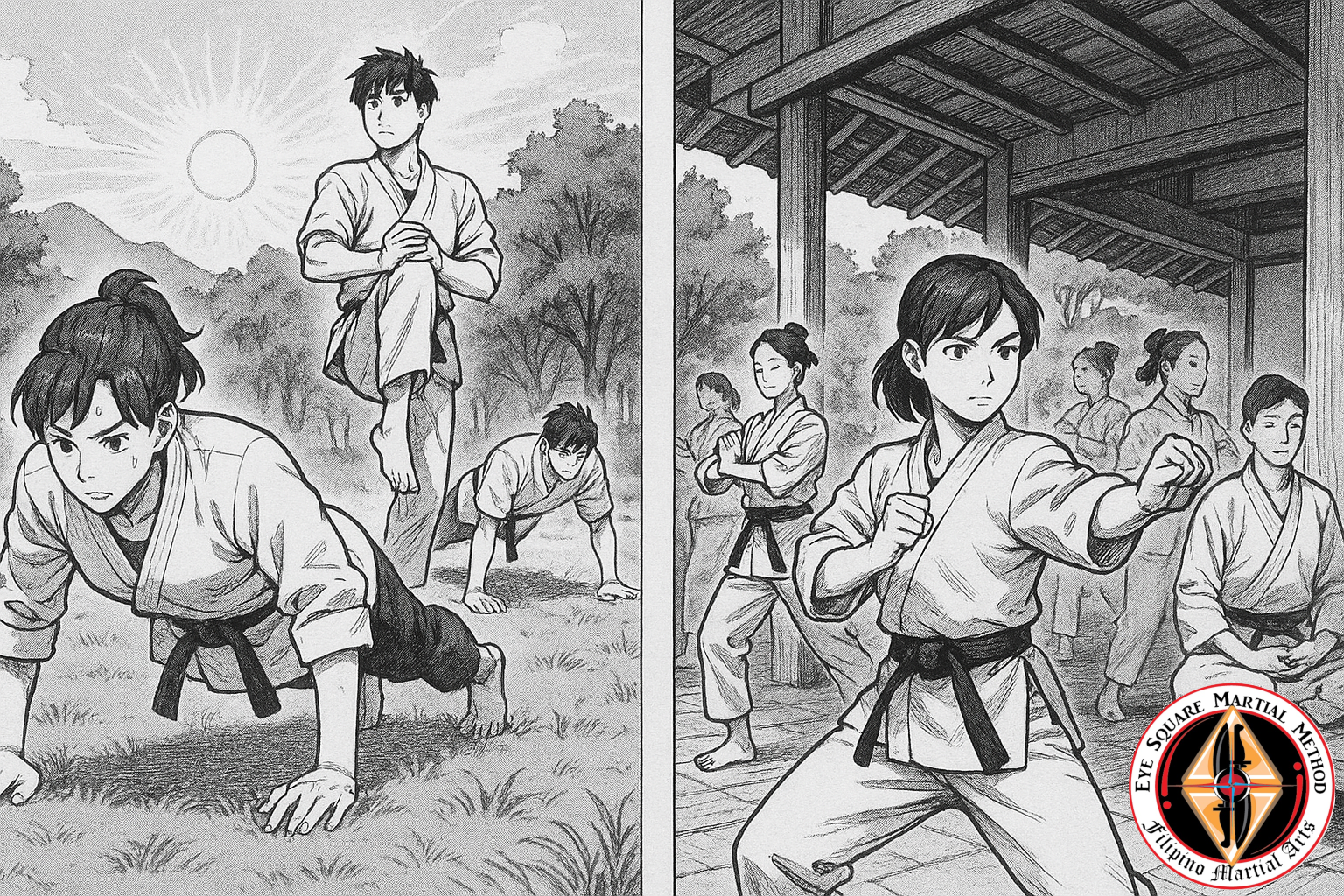Martial arts often get boiled down to punches, kicks, and takedowns—but training offers far more than self-defense skills. Whether you’re looking to boost your fitness, sharpen your mind, or build lasting friendships, the practice delivers holistic benefits that extend well beyond the dojo floor.
1. Physical Health and Functional Fitness
- Strength & Conditioning
Traditional drills—push-ups, stances, strikes on heavy bags—build muscular endurance, core stability, and joint resilience in ways that generic gym routines can’t match. - Mobility & Balance
Kicks, stances, and footwork patterns train your body through full ranges of motion, improving flexibility and proprioception. This translates to better posture, fewer injuries, and easier daily movement. - Cardiovascular Endurance
Circuit-style pad work, sparring rounds, and partner drills spike your heart rate and build aerobic capacity, all while keeping training varied and fun.
2. Mental Clarity and Stress Relief
- Mind-Body Connection
Every technique demands focus on breath, body alignment, and timing—drawing you fully into the present moment and dialing down distracting thoughts. - Stress Inoculation
Controlled contact drills and timed sparring provide a safe environment to experience and manage adrenaline. Learning to remain calm under simulated pressure equips you to handle life’s stresses more gracefully. - Mindfulness & Meditation
Many schools incorporate seated meditation, breathing exercises, or slow-flow kata to cultivate mental stillness, reduce anxiety, and improve emotional regulation.
3. Personal Development and Discipline
- Goal Setting & Achievement
Progressing through belt levels or mastering new techniques reinforces a growth mindset: set a goal, put in the work, and earn tangible rewards. - Resilience & Grit
Facing physical challenges—like a grueling conditioning circuit or a tough sparring session—teaches you to push through discomfort, develop patience, and embrace constructive criticism. - Self-Confidence
As your skills and fitness grow, so does your belief in your own abilities. That confidence often carries over into career, relationships, and everyday challenges.
4. Community and Connection
- Supportive Training Environment
Dojos and gyms become second homes—places where peers cheer your progress, partners hold pads through exhaustion, and instructors guide you through setbacks. - Cross-Generational Bonds
Martial arts classrooms often mix ages and backgrounds, fostering mutual respect between beginners, seasoned practitioners, and senior instructors. - Shared Values
Courtesy, integrity, perseverance, and respect are foundational principles in most schools. Living these values strengthens social bonds and creates a positive culture on and off the mat.
5. Lifelong Learning and Adaptability
- Evolving Curriculum
Many martial artists cross-train in weapons, grappling arts, or modern self-defense systems—transforming their practice into a dynamic, ever-growing journey. - Problem-Solving Skills
Drills that pit you against unpredictable attacks or multiple partners develop creative thinking and split-second decision-making. - A Practice for Every Stage of Life
From children learning discipline to seniors seeking mobility and community, martial arts adapts to every age and ability—meaning it can truly be a lifelong pursuit.
Conclusion
Martial arts is far more than a collection of fighting techniques. It’s a comprehensive system for improving your body, mind, and social well-being. Whether you want to manage stress, build practical fitness, or find a supportive community, the lessons you learn in the dojo will ripple through every aspect of your life.


Leave a Reply